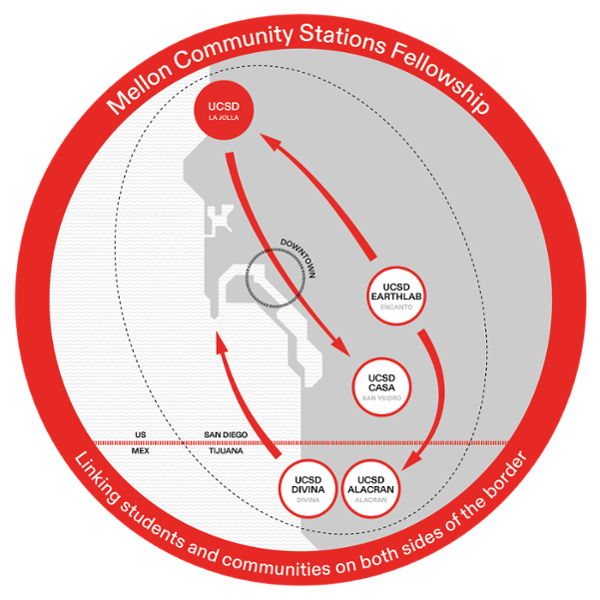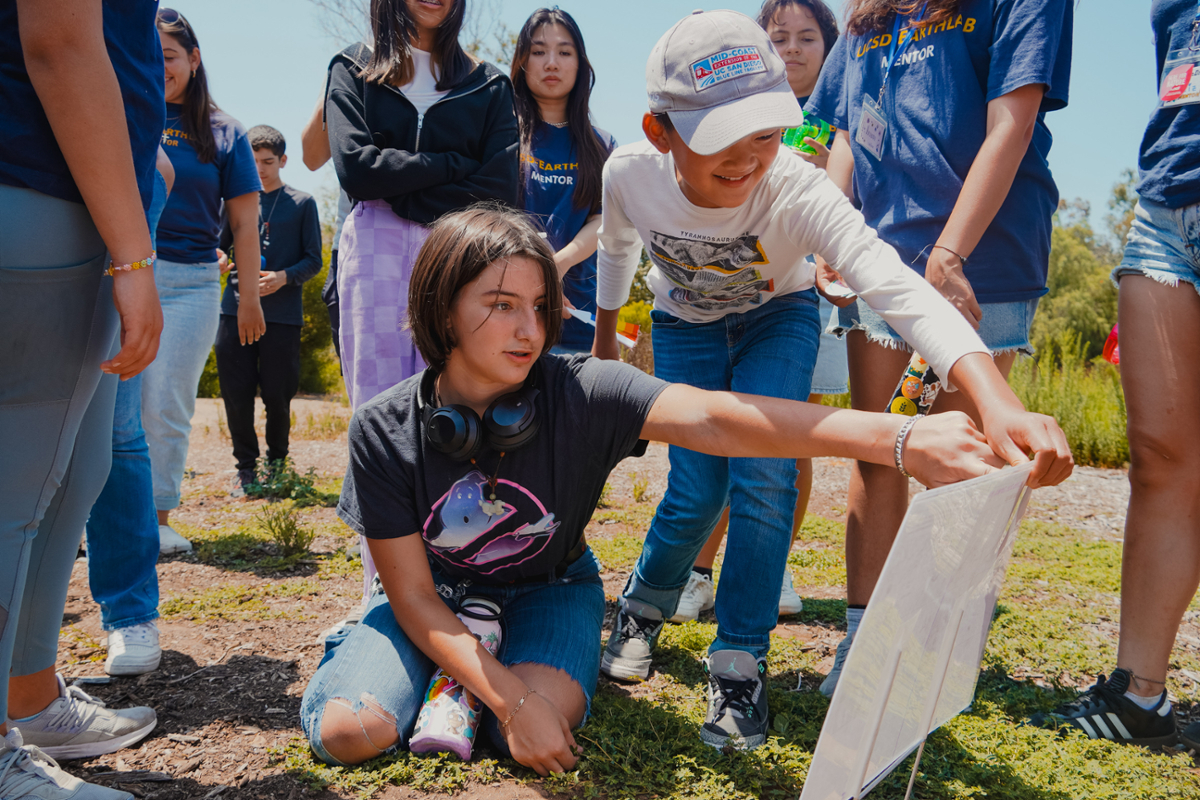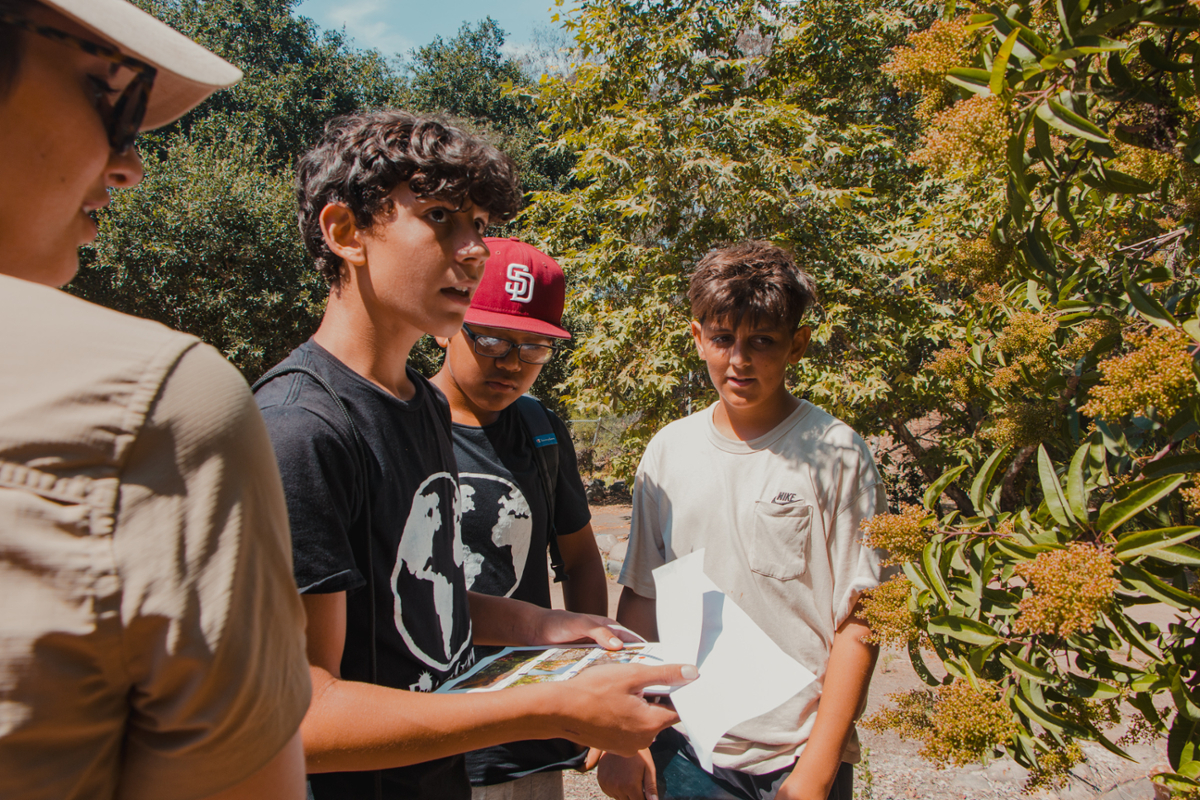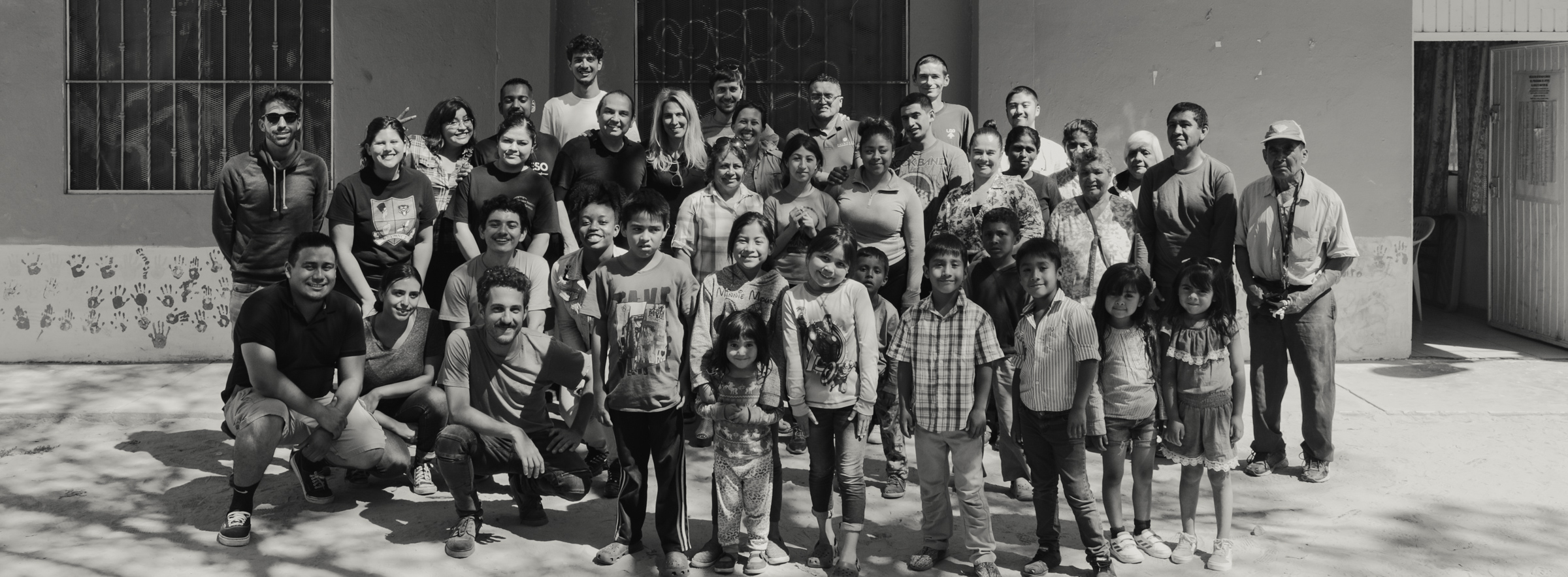THIS APPLICATION WILL CLOSE ON FEBRUARY 20, 2026!
Training undergraduates to conduct field-based climate action research and contribute to community capacity building
The year-long Mellon Community Stations Fellowship (MCSF), made possible by funding from the Mellon Foundation, is a continuation of the long-running—now retired—Blum Summer Field Internship (BSFI). BSFI was established in 2014 with generous funding from University of California Regent Richard C. Blum and the UC Office of the President, to enable dozens of UC San Diego undergraduates to participate each summer in immersive, team-based field research in the Community Station sites, located in four disadvantaged communities across the San Diego–Tijuana border region.
Overview
The aim of the Mellon Community Stations Fellowship is to foster undergraduate skills in field-based climate action research and relationship building with community partners. Fellows contribute to capacity building in community-based organizations through direct engagement and the development of a strong research portfolio.
This year-long, paid fellowship provides professional development and academic research opportunities for undergraduates through project-based field work at the Community Stations, a public scholarship initiative of the Center on Global Justice at UC San Diego (CGJ).

Research Initiatives
The Center on Global Justice carries out highly interdisciplinary research and programming projects. If you have skills and/or experiences that relate to one of the research themes below, we encourage you to apply!
Urban Watershed Research
The Community Stations are located in the most polluted waterways across the border region, enabling collaborative urban watershed research with community partners that include place-based ecological research, mapping and diverse forms of documentation. Fellows engage in social-ecological watershed research and mapping as their primary mode of field research.
Experiential Climate Education for Local Youth
Educational and research activities are supported by a unique approach to experiential education, through the design of dialogical pedagogical processes that recognize the everyday practices of urban youth and communities in their own neighborhood context. In the field at EarthLab, Fellows are trained to engage youth participants in environmental education based on a model of mentorship and social connection.
Public Visual Arts and Culture Programming
In the Community Stations, visual arts, music, theater-dance and literature intersect community science and social research, becoming tools for civic engagement, increasing public knowledge and community capacities for social and climate action.


Program Details
Full participation is expected. Partial participation due to academic conflicts will be reviewed on a case-by-case basis. Similarly, progression quarter-to-quarter will be contingent on successful completion of program requirements.
- Fellows will be hired with the Center on Global Justice as paid undergraduate researchers for the academic year and can expect to work 8–15 hours per week compensated at a rate of $18.25/hr.
- Dates: Monday, August 3, 2026 – Friday, May 28, 2027
- Full participation entails a minimum of 5 hours per week in the field and attendance at the studio each week during the internship period. Field schedules are fairly flexible and TBD.
Fellowship Sequence
Summer: Orientation to Community-Based Field Work
7 weeks
Monday, August 3, 2026 – Friday, September 18, 2026
Training for field assignments begins. For mentors, this will include mentoring youth on-site beginning week 3. All Fellows start thinking about project directions and summer concludes with a presentation of project briefs to community partners and CGJ staff.
Fall: Drafting a Project Proposal
10 weeks
Field work is in full swing as Fellows begin developing relationships with key stakeholders, including community partners. By the end of Fall quarter, Fellows are able to draft a full project proposal, collect feedback from stakeholders, and present a working proposal to community partners and CGJ staff.
Winter: Advancing Your Project
10 weeks
Fellows begin work on their research projects. Data collection is in progress as relationships with community partners deepen. Fellows present progress updates to community partners and CGJ staff.
Spring: Communicating Your Work
9 weeks
Fellows analyze and communicate their findings to multiple audiences. Studio sessions prepare Fellows to confidently and effectively translate their work into next steps for their career. Spring culminates in a Fellow Symposium in late May.
Contact Us
To inquire about our Mellon Community Stations Fellowship, contact Amy Knight
